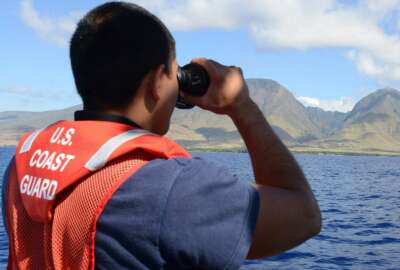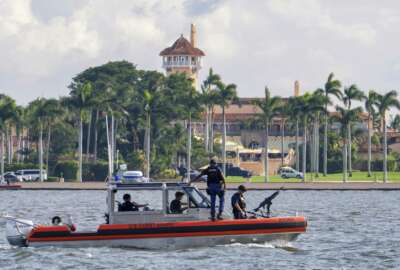

By the end of January, the government shutdown may impact a group that's usually untouched from the severe impacts of a lapse in appropriations: Coast Guard...
The Coast Guard will face another “first” if the partial government shutdown continues through January: it won’t be able to pay its retirees.
The situation would be an unprecedented one for the Coast Guard — or really any other federal agency — as most departments use trust funds, not appropriations, to pay retired employees. But unlike other federal agencies and branches of the armed services, the Coast Guard uses a pay-as-you-go appropriation to fund military retiree payments.
“We cannot disburse the annuitant payroll on Feb. 1 because the appropriation has been expended below projected January 2019 expenditure needs,” a Coast Guard spokesman said in an email to Federal News Network. “In order for the Coast Guard to pay its retired members, we will require a [fiscal 2019] appropriation, a continuing resolution or passage of an alternative funding measure.”
To be clear, civilian retirees — including civilian employees who retired from the Coast Guard or any other agency — will receive their annuities as usual, because the Office of Personnel Management uses a trust fund, not an annual appropriation, to disburse retirement payments.
Meanwhile, both current civilian and military Coast Guard members are set to miss upcoming paychecks in the coming days and weeks.
About 8,000 Coast Guard civilian employees will miss their second paychecks of 2019 this week. Pay day for most civilian employees across the federal workforce is on or around Jan. 25.
The next pay date for Coast Guard military members is at the end of January. Uniformed service members would miss those checks too if the government shutdown continues through the end of the month. Coast Guard military members have already missed their Jan. 15 paychecks.
Legal analysis from the Trump administration determined the Coast Guard could pay its military members their final paychecks of 2018, but the service lacks the necessary funds it needed to execute paychecks for the beginning of 2019.
Members of Congress and military associations have been advocating for an immediate solution to pay the Coast Guard.
Alan Knapp, senior vice president of government and external affairs for the Navy League, said his organization is in daily contact with members of Congress and Trump administration. Members have sent more than 1,283 messages through the Navy League’s letter-writing campaign to the President and Congress.
Sen. John Thune (R-S.D.) and Rep. Peter DeFazio (D-Ore.) introduced the Pay Our Coast Guard Act. The bill would ensure Coast Guard military members, civilian employees and contractors get paid for any period of time where stop-gap or full-year appropriations aren’t in effect.
The Coast Guard Commandant has even weighed in on the situation.
“I find it unacceptable that Coast Guard men and women have to rely on food pantries and donations to get through day-to-day life as service members,” Adm. Karl Schultz said in a video posted to his Twitter account.
Your Coast Guard leadership team & the American people stand in awe of your continued dedication to duty, resilience, & that of your families. I find it unacceptable that @USCG members must rely on food pantries & donations to get through day-to-day life. #uscg pic.twitter.com/TZ9ppUidyO
— Admiral Karl Schultz (@ComdtUSCG) January 23, 2019
Schultz said he and Homeland Security Secretary Kirstjen Nielsen will be “taking to Capitol Hill” to describe the government shutdown’s financial impacts on Coast Guard members and employees.
The Coast Guard Mutual Assistance program has expanded the limits of its interest-free loans to employees and their families to $1,500 for those with dependents and $1,000 to those without dependents, Vice Commandant Adm. Charles Ray said late last week in an email to the Coast Guard workforce.
Coast Guard’s child development centers have deferred payments and suspended collection on accounts for members who aren’t being paid during the government shutdown, Ray said.
In addition, the Coast Guard has worked with DHS and J.P Morgan Chase to temporarily suspend new delinquent payment penalties on government travel charge cards, Ray added. J.P Morgan won’t take action until Feb. 12.
Copyright © 2025 Federal News Network. All rights reserved. This website is not intended for users located within the European Economic Area.
Nicole Ogrysko is a reporter for Federal News Network focusing on the federal workforce and federal pay and benefits.
Follow @nogryskoWFED


